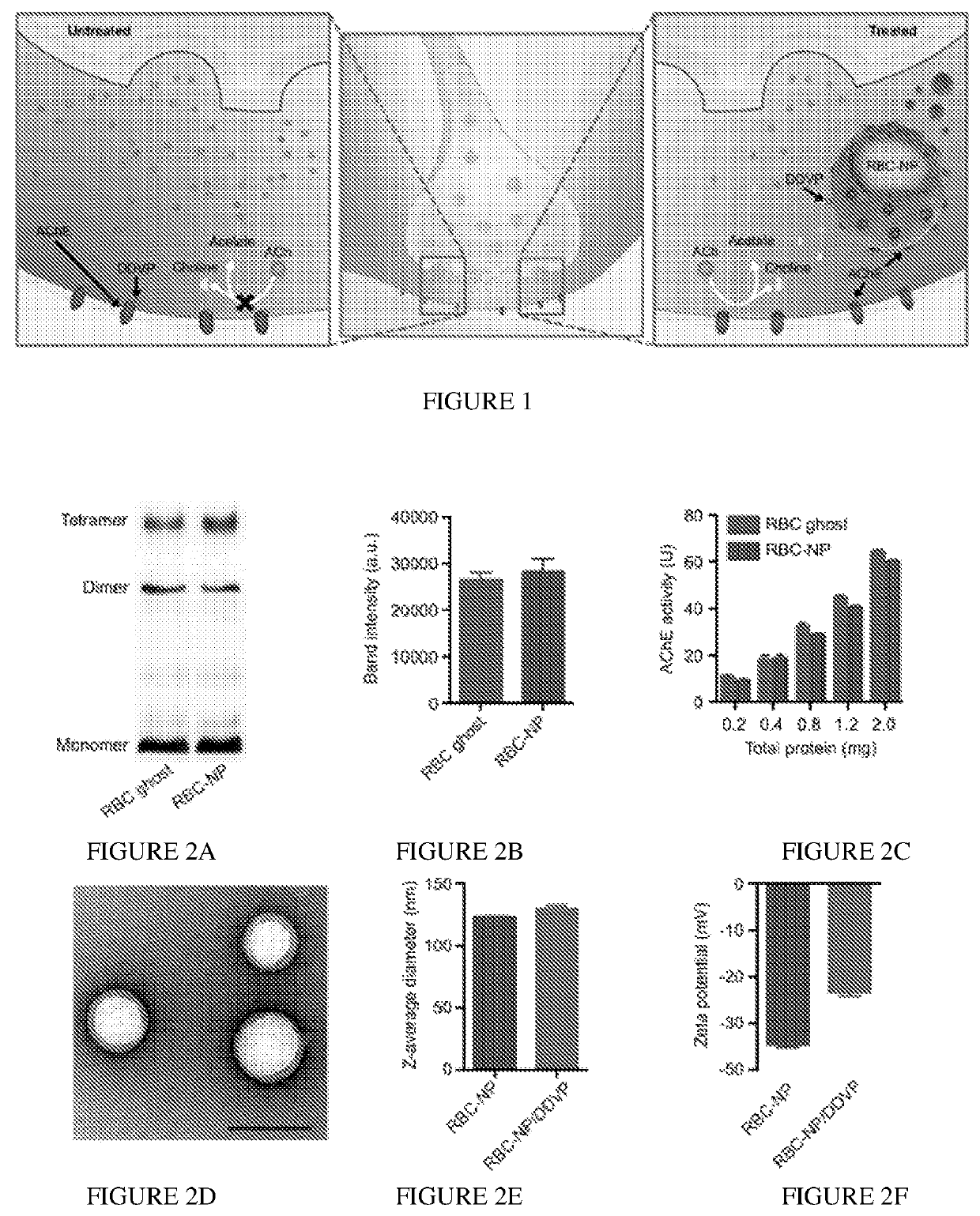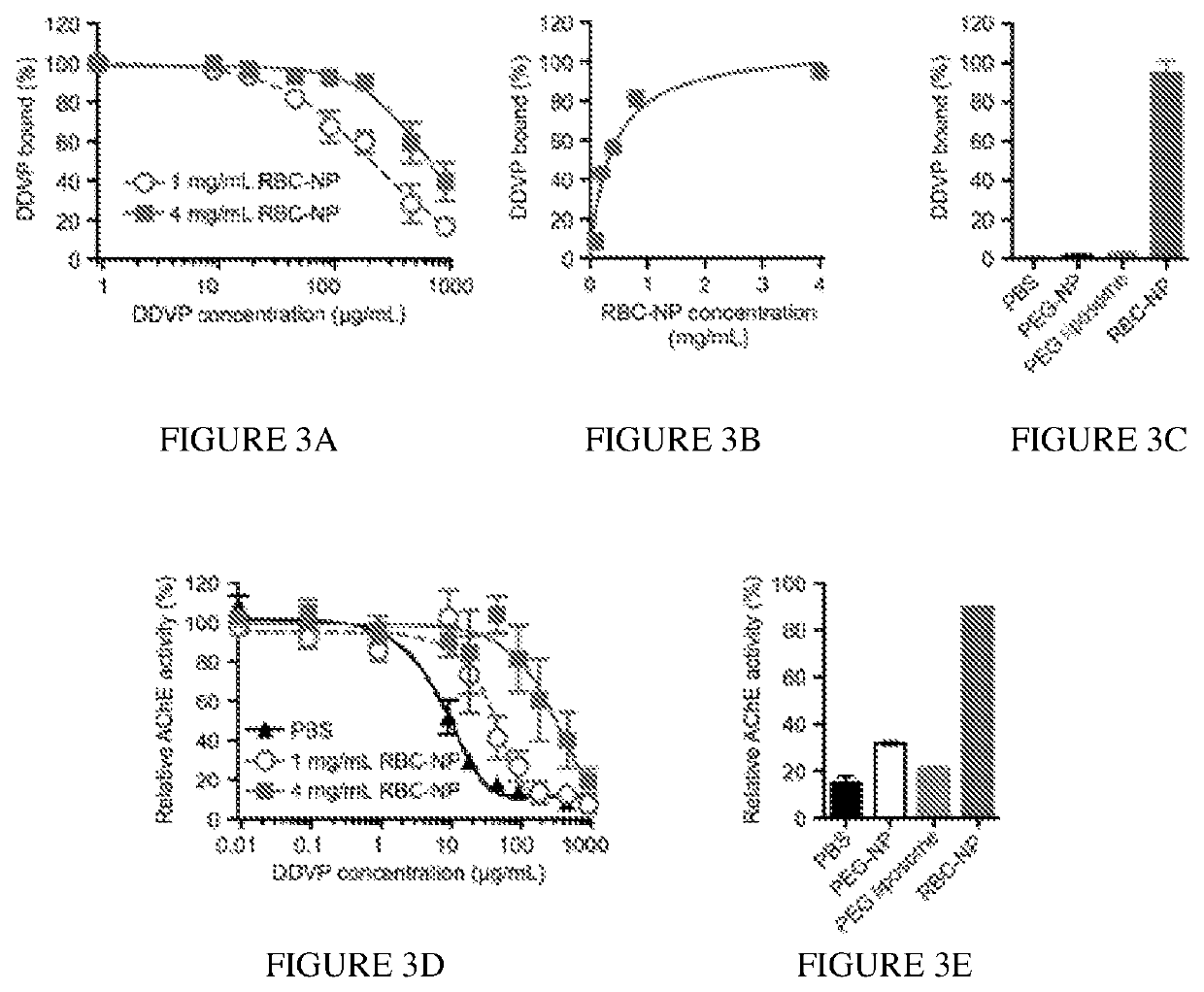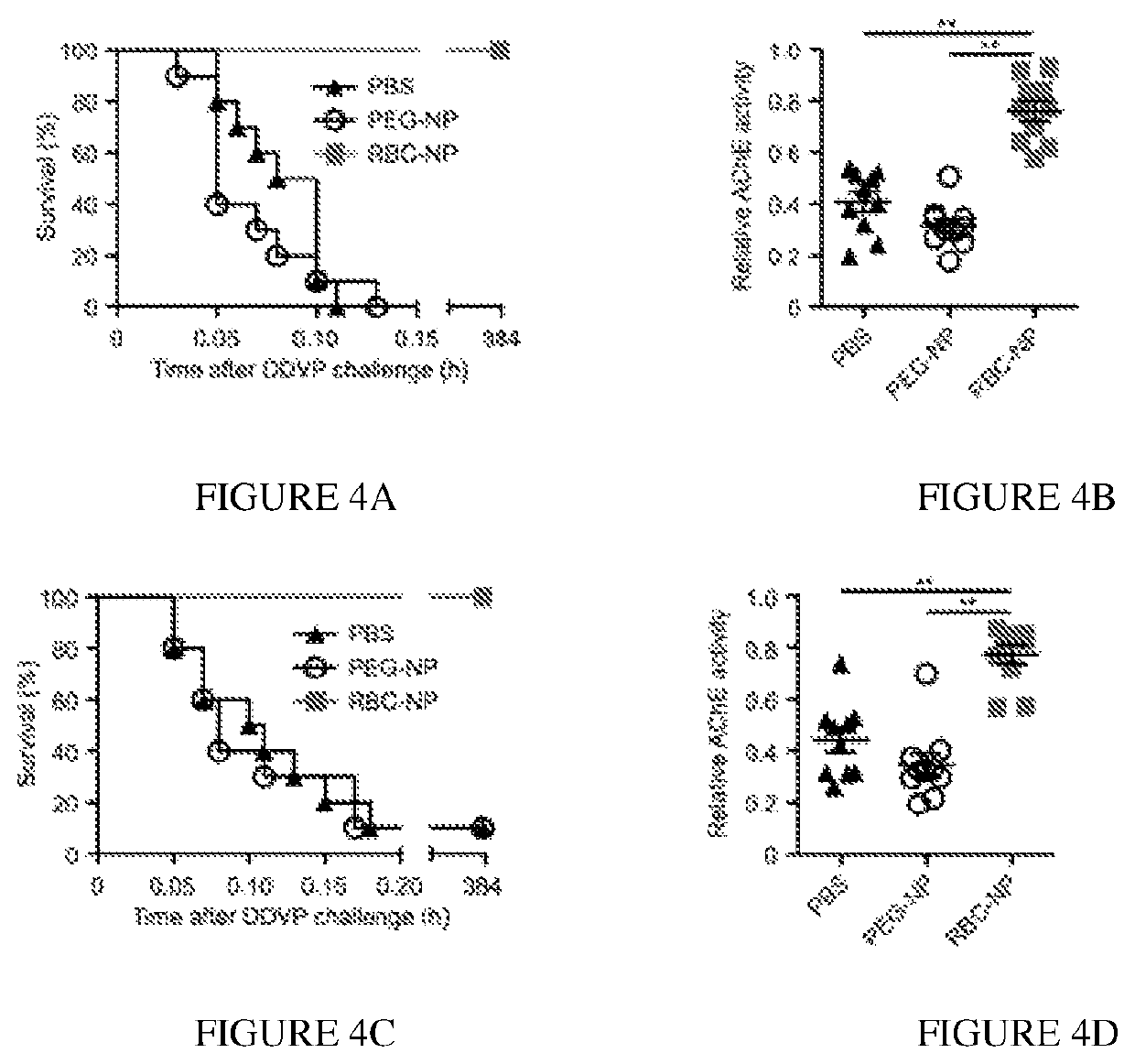Detoxification using nanoparticles
a nanoparticle and toxin technology, applied in the field of toxin treatment, can solve the problems of difficult removal of ops from the body, high toxic ops represent a great threat to both military and civilian populations, and can not be used in capsule delivery, etc., to achieve the effect of decreasing or neutralizing the effect of a toxin
- Summary
- Abstract
- Description
- Claims
- Application Information
AI Technical Summary
Benefits of technology
Problems solved by technology
Method used
Image
Examples
Embodiment Construction
[0016]The practice of the present invention will employ, unless otherwise indicated, conventional techniques of nanotechnology, nano-engineering, molecular biology (including recombinant techniques), microbiology, cell biology, biochemistry, immunology, and pharmacology, which are within the skill of the art. Such techniques are explained fully in the literature, such as, Molecular Cloning: A Laboratory Manual, 2nd ed. (Sambrook et al., 1989); Oligonucleotide Synthesis (M. J. Gait, ed., 1984); Animal Cell Culture (R. I. Freshney, ed., 1987); Methods in Enzymology (Academic Press, Inc.); Current Protocols in Molecular Biology (F. M. Ausubel et al., eds., 1987, and periodic updates); PCR: The Polymerase Chain Reaction (Mullis et al., eds., 1994); and Remington, The Science and Practice of Pharmacy, 20th ed., (Lippincott, Williams & Wilkins 2003).
[0017]Unless defined otherwise, all technical and scientific terms used herein have the same meaning as is commonly understood by one of ordi...
PUM
 Login to View More
Login to View More Abstract
Description
Claims
Application Information
 Login to View More
Login to View More - R&D
- Intellectual Property
- Life Sciences
- Materials
- Tech Scout
- Unparalleled Data Quality
- Higher Quality Content
- 60% Fewer Hallucinations
Browse by: Latest US Patents, China's latest patents, Technical Efficacy Thesaurus, Application Domain, Technology Topic, Popular Technical Reports.
© 2025 PatSnap. All rights reserved.Legal|Privacy policy|Modern Slavery Act Transparency Statement|Sitemap|About US| Contact US: help@patsnap.com



